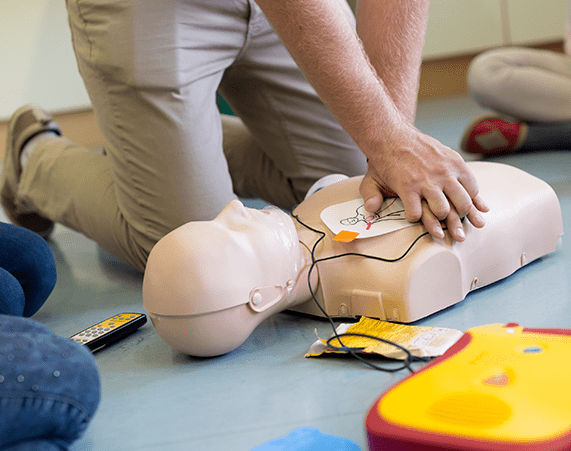Globally, cardiac arrest claims more lives than colorectal cancer, breast cancer, prostate cancer, influenza, pneumonia, auto accidents, HIV, firearms, and house fires combined.
According to the American Heart Association, each year 475,000 Americans can die from cardiac arrest. Cardiac arrest occurs when the heart stops, and CPR pumps the much-needed oxygen-rich blood to the brain, lungs and vital organs.
With more cardiac arrests happening outside of the hospital each year, there are tremendous benefits both inside and outside of the workplace to learning CPR. It’s a fact that the faster CPR is administered after a cardiac arrest, a person’s chance for survival can significantly increase as much as twice or three times.















